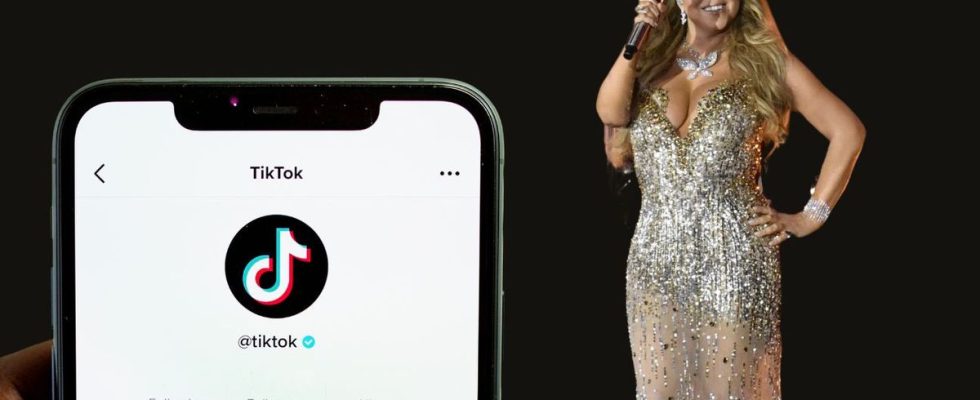In stiletto heels and a tight gold dress, Mariah Carey stands tall on a weight press. “I’m Mariah Carey, of course it’s my sports outfit,” says the singer with a hint of irony in her latest video, published this Monday. Just recovered from the marathon that is the Christmas holidays for the interpreter of All I want for Christmas, the diva here follows the “Of course” challenge, popular for several weeks on social networks. The goal ? Respond to all the clichés around your job, your romantic situation or your origin.
On TikTok, one of the most liked videos to date – 759,000 times – immerses himself in a Mexican household in the United States. “We’re Mexican, of course we use a pan to go in the oven. We are Mexican, of course we have two fridges. One for drinks and one for food. We’re Mexican, of course we have extra blankets.” Other populations whose cultures are less known around the world are also speaking out. This is particularly the case for indigenous people. “We are indigenous, of course we are going to show our troop of buffaloes,” quips the Internet user.
Deconstruct prejudices
In the professional sector, the “Of course” challenge is also an opportunity for certain professions to criticize the negative aspects of their daily lives. On TikTok, the nail technician Nails by Same thing for videographers or even veterinarians. “We are video editors. Of course we will lose hours of sleep to respond to your modification requests,” says the first. “We are veterinarians, of course we eat before surgery,” quips the second.
But the trend goes further and can also allow stigmatized minorities to express themselves and deconstruct preconceived ideas. In mid-December, wearing their ski equipment, the Swiss activist Léon Salin and his partner Lakna published a video in the mountains following the same challenge. The two of them are a cis trans couple and often have to face stereotypes. With the “Of course” trend translated into French as “Of course”, all the preconceived ideas surrounding their relationship are mocked: the questions of whether “it’s like with a man”, those around the sex of Léon or of his real first name. The video, however, has nothing to make you laugh and mainly serves to warn of the dangers, including death threats, that the couple encounters on a daily basis in the face of this ignorance.
But like many things on the Internet, the “Of course” trend can be misused and used against a part of society. On some videos, voices are removed and replaced with other comments. In early January, in reaction to the current Hamas-Israel war, a video from a pro-Palestinian account mocked Israel’s Jews. “Of course we will publish weird propaganda videos. Of course we will support ethnic cleansing. Of course we’re racist.” We’ll stop there for the quotes, we undoubtedly preferred when the trend had a real interest in deconstructing online stereotypes.

